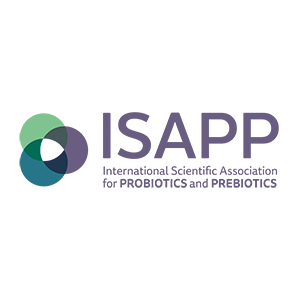
Hay fever patients can benefit from probiotics
New research from Winclove Probiotics and Griffith University, Australia, published today in the Journal of Alternative and Complementary Medicine, shows Ecologic® AllergyCare to improve the quality of life of hay fever patients.
Main study outcomes:
63% of the participants reported a clinically meaningful improvement in quality of life (p<0.001) after 8 weeks of supplementation with Ecologic® ALLERGYCARE
The sum of individual and overall symptoms scores over the course of the treatment significantly reduced
A trend toward less use of medication was seen
Probiotics and allergies
Scientific studies reveal that allergies are associated with alterations and reduced biodiversity in the composition of the gut microbiota. In clinical studies, probiotics have shown efficacy in modifying the immune system and improving allergic symptoms. However, probiotic effects are strain and even formulation-specific. To modulate immune responses and thereby manage the development of allergies, Winclove has developed the probiotic formulation Ecologic® ALLERGYCARE.
In a double-blind, randomised, placebo-controlled human trial, Ecologic® ALLERGYCARE was shown to significantly reduce atopic dermatitis, or eczema, in children(1). Encouraged by these positive results, Winclove Probiotics in collaboration with researchers from Griffith University, investigated the potential of Ecologic® ALLERGYCARE to reduce symptoms of hay fever (allergic rhinitis)(2).
Hay fever
Hay fever is typically indicated by symptoms such as sneezing, itchiness of the eyes, a runny nose, unrefreshed sleep, and sinus pain. These symptoms are an immune reaction to allergens such as pollen, but also by house dust mites or animals. As these allergens are generally not completely avoidable, and current treatment options do not tackle the underlying cause (e.g. antihistamines), are not suitable for long-term use (e.g. corticosteroids), or require multiple expensive treatment options (e.g. immunotherapy) (3), alternative treatment options that positively influence the immune system are highly desirable.
Study design
The presented study is a phase II intervention study, aimed to determine the response of patients with allergic rhinitis to the probiotic treatment. Forty participants with confirmed hay fever were monitored over a period of eight weeks. Four patients who were recruited dropped out during the study. The participants consumed Ecologic® ALLERGYCARE twice daily throughout the intervention period. A specific quality of life questionnaire for rhinitis patients (mRQLQ) was filled in at week zero (baseline), week four (midpoint), and week eight (post treatment). Additionally, a symptom and medication diary was filled in throughout the treatment period. A change in mRQLQ score of 0.7 (pre-post) or greater was accepted as clinically beneficial based on previous experience (4). To account for fluctuations in pollen count due to natural environment changes, the treatment was considered non-effective if ≤15% of participants responded to treatment (p0). An effective treatment was accepted if at least 33% of participants responded positively to treatment (p1). This means that at least 33% of participants needed to have at least a 0.7 increase in quality of life score for the treatment to be accepted as effective.
Results
The results show great promise for hay fever patients. After eight weeks of Ecologic® ALLERGYCARE supplementation, 25 participants indicated a meaningful improvement (0.7 or greater) in quality of life (p<0.001). This corresponds to 63% of the monitored individuals. These findings hold even when the threshold for an improvement in quality of life is increased to 1.0, indicating a robust effect of supplementation in this cohort. A reduction of symptoms was indicated even after only four weeks of treatment. After eight weeks, the average severity of individual and overall symptoms was reduced to about a third of their original severity. Furthermore, it was noticed that fewer participants needed to use medication for their allergy whilst using Ecologic® ALLERGYCARE, although this was not statistically different.
Future research
Encouraged by these results, a final phase III trial, using a larger test subject group, is recommended. This will assess the effectiveness of the probiotic treatment in comparison with current medications. Such research would be an exciting step not only for the use of probiotics to reduce symptoms of allergic rhinitis, but for allergy management as a whole. As allergies are so wide-spread, efficient symptom management would significantly reduce economic loss by reducing sick days and increasing productivity and general wellbeing (5). In the future, probiotics are likely to play an integral role in helping people manage their allergic symptoms.
Implications for hay fever patients
For patients suffering from allergic rhinitis disease severity only moderately correlates with how patients feel. Thus, therapy should focus not only on reducing symptoms but also on reducing impairments that patients consider important (increase in quality of life). In the current study it was shown that Ecologic® ALLERGYCARE does not only reduce symptoms of hay fever but more importantly, causes a significant and clinically meaningful improvement in quality of life. The personal burden of illness, as perceived by hay fever patients, can thus be positively influenced by intake of Ecologic® ALLERGYCARE. Moreover, less allergy related medication was used during Ecologic® ALLERGYCARE supplementation.
References
- Yesilova, Y., et al., Effect of probiotics on the treatment of children with atopic dermatitis. Ann Dermatol, 2012. 24(2): p. 189‐93.
- Watts AM, West NP, Smith PK, Besseling-van der Vaart I, Cripps AW, Cox AJ, A multi-species probiotic supplement (Ecologic AllergyCare) relieves seasonal allergic rhinitis symptoms, unpublished.
- http://www.nhs.uk/Conditions/Hay-fever/Pages/Treatment.aspx
- Juniper EF, ThompsonAK, Ferrie PJ, Roberts JN. Development and validation of the mini Rhinocconjunctivitis Qualitiy of Life Questionnaire. Clin Exp Allergy. 2000;30(1):132-40.
- Pawankar R. Allergic diseases and asthma: a global public health concern and a call to action. The World Allergy Organization Journal. 2014;7(1):12. doi:10.1186/1939-4551-7-12.
- World Health Organization. White Book on Allergy 2011-2012 Executive Summary. By Prof. Ruby Pawankar, MD, PhD, Prof. Giorgio Walkter Canonica, MD, Prof. Stephen T. Holgate, BSc, MD, DSc, FMed Sci and Prof. Richard F. Lockey, MD.






